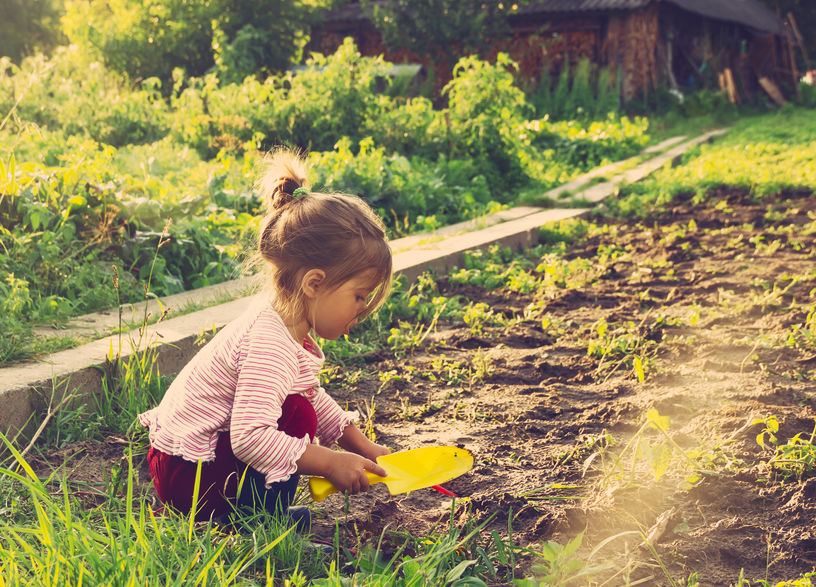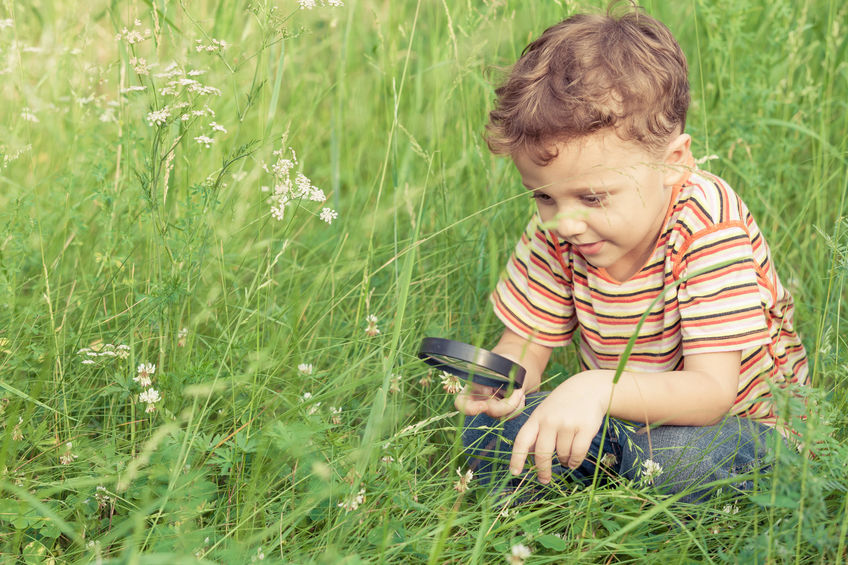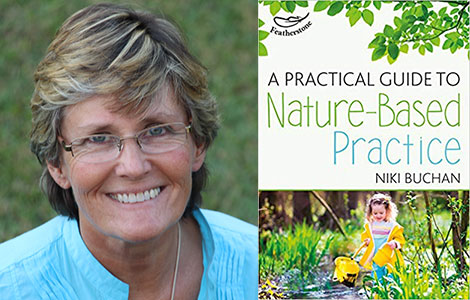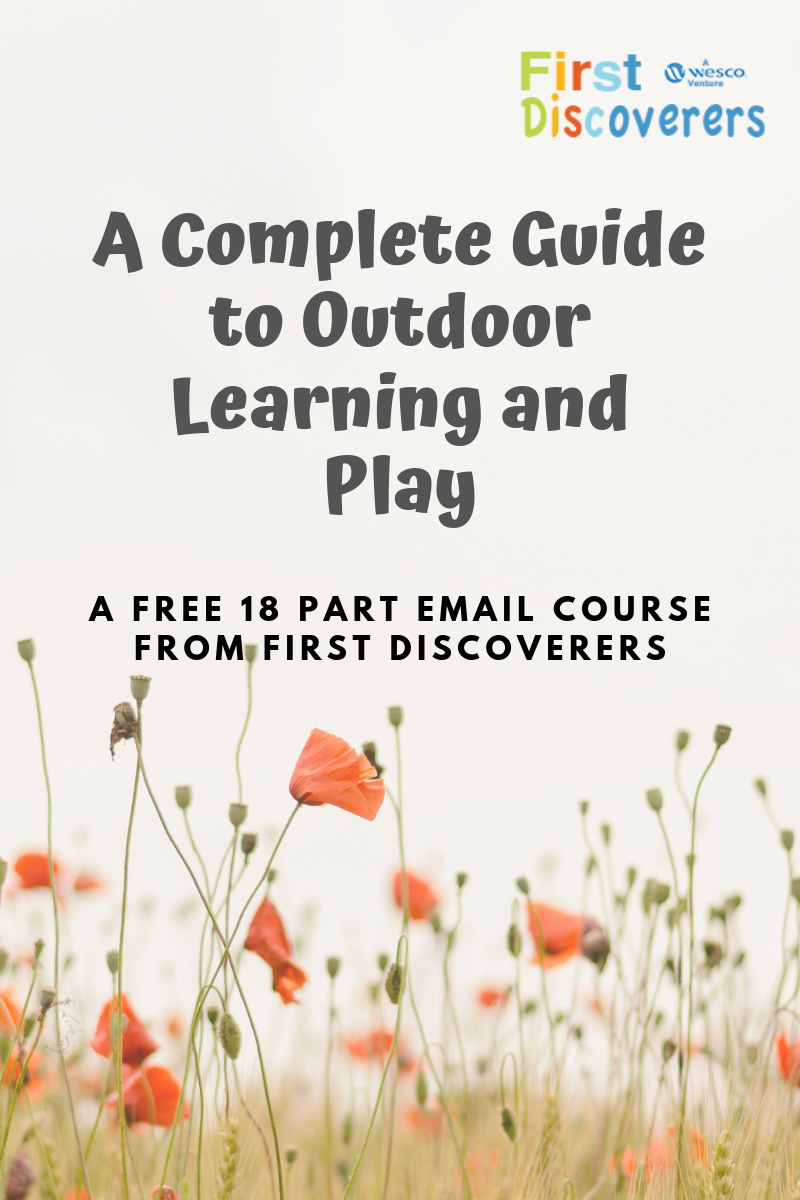Childcare Conversations
The Benefits of Outdoor Learning: Interview with Niki Buchan
After founding natural childcare settings in South Africa and developing and heading up Scotland’s first Nature Kindergarten, Niki is now working as an International Educational Consultant whilst continuing to support the Australian Bush schools movement. We are delighted to have the opportunity to speak with Niki about the importance of outdoor learning in today’s childcare settings.
Thank you for agreeing to chat with First Discoverers. First off, can you explain what initially drew you to being involved in the childcare industry?
As the oldest of 5 children and very much a nurturer I have always been fascinated by children’s thinking and doing and one of my life’s goals was to one day have 6 children myself. We did stop at 4 children. I initially worked in a laboratory but soon realised that this was not something I wanted to do for the rest of my life and that my calling was to be with children and to advocate for children’s rights. This is when I became involved in a new profession, a profession where I could be with children.
“the culture has become very risk-averse severely limiting children’s opportunities to develop their risk-taking capabilities”
Having founded several childcare institutions, what skills would you say are absolutely vital for a childcare professional?
Coming from the perspective of an advocate for children, I feel it is essential that a childcare professional is driven to do the right thing for children, to provide environments where children thrive. To do this we need to be a strong and outspoken advocate, to be aware of new and different ways of doing things, to be a good problem solver, to be a researcher.
A Complete Guide to Outdoor Learning and Play – Get it Now
What would you say makes a successful childcare setting?
A space where children and families are happy and develop a trust in you as an individual and as part of a trusted team. Where routines are flexible and focus on the needs of the children. Where the physical environment is sensorially stimulating without being over stimulating and where adults are agreed and work together on what is best for children.
In your view, what should children ‘learn’, or ‘gain’ from their time in early years care?
Children should have opportunities to develop into confident and capable individuals with a love of learning. They should develop the skills needed to cope with life and possible future challenges including perseverance, persistence, resilience, risk-taking, problem-solving and a sense of well-being.
How has the childcare industry changed during the time you have been involved in the sector?
Children are spending far more time away from families and in childcare and education settings now than they did previously, some are in care from 6am until 7pm five days a week. With a huge increase in regulations linked to keeping children physically safe, the culture has become very risk-averse severely limiting children’s opportunities to develop their risk-taking capabilities, this has made children more vulnerable. There has also been a large focus on accountability, where those working with children are now required to document and evidence everything, often taking away from time spent with children. The role of the educator/practitioner has needed to become more focused on the holistic development of the children, often taking on roles that were previously the domain of the families.

Having being based in each for a time, have you found that South Africa, Scotland and Australia each have different approaches to childcare? In what ways are they different or similar?
The similarities are that children all over the world have the same needs, the same play urges and needs adults to provide for these. In all these countries there is a genuine desire to do the right thing for children, it is often how this is interpreted where the differences lie. In South Africa there is less focus on documentation and evidencing, trusting educators/practitioners as professionals. There are fewer regulations limiting physical risk-taking in childcare and education environments. Children also start school slightly later than in the UK and Australia which allows additional time for play. A negative could be that group sizes may be large. Childcare in Scotland and Australia have more similarities with each other, a focus on regulations and academic learning.
What would you say are currently the biggest problems that childcare settings face?
Sadly the role and impact of the professionals working with young children is highly undervalued resulting in a lack of understanding and respect as well as being financially devalued. It is highly demotivating for those working in childcare not to be recognised, respected and valued as professionals with one of the most important and challenging roles. This results in a young, relatively inexperienced workforce and a high staff turnover. Our young children deserve so much more at this critical stage of their development.
Whilst in Scotland you help set-up, and were the Head of the first outdoor Nature Kindergarten in the UK, can you tell us more about your involvement and its mission?
My employer took over a nursery school in rural Scotland which was a great opportunity to develop a Nature Kindergarten, a place where children work with nature, where children play and develop in a sensorial natural environment in all weathers. With many years founding, setting up, managing and working in my own nature-based settings in South Africa as well as many years as the Head of an independent school nursery in Scotland, my skills complemented those of my colleague as we set up two Nature Kindergartens and I was the Head of both centres. I left when I was offered the opportunity to work in Australia.

At what point did you decide to focus your career on outdoor learning?
Having spent long periods of time outdoors as a child and young adult it was natural to me that children should have access to the outdoor environment and in particular to the natural outdoor environment. My settings in South Africa all had large natural outdoor spaces and we spent a lot of time in local nature reserves, this is just what we did. Moving to the UK I became aware that not all children have these opportunities and my focus became in promoting outdoor learning and a reconnection to nature.
How important is having access to adequate outdoor facilities and equipment to a childcare setting?
My professional opinion is that it is vital that children have regular access to the outdoors. All the current research points to the benefits of children having access to the outdoors and in particular to having access to nature. A factor to consider is the amount of time children now spend indoors and on devices when with their families. Combined with the length of time many children today spend in childcare settings, providing a suitable outdoor space has become one of the most important factors to consider when offering childcare. As an advocate for children I consider it my duty to promote natural outdoor play.
What advice would you give to childcare professionals that perhaps find it difficult to access a natural environment?
Not all childcare premises have been planned or provided with natural environments but every childcare professional can advocate for nature. This can be done through taking children off-site to a local park, beach, forest, meadow or even a vacant plot with a tree and grass on a regular basis, daily would be ideal but certainly weekly. Introducing potted plants, sandpits, water play areas, vegetable and herb gardens into the space is a good start. Bringing in open-ended resources made of natural materials such as wood slices, logs, tree stumps, shrub or tree cuttings are easily achievable, introducing a small fire pit would offer another dimension.
“I have become increasingly concerned about the rise in mental health issues in children in the UK, Australia and USA”
Can you tell us more about the Australian Bush Schools movement and what made you decide to be a part of it?
Children in Australia have traditionally spent a lot of time outdoors and the Aboriginal culture embraces everything nature has to offer. With a growing focus on academics, standardised testing and risk averseness, an increasing number of childcare settings were focusing on the indoors to the detriment of outdoor play. I have become increasingly concerned about the rise in mental health issues in children in the UK, Australia and USA, many leading to PTSD, trauma and suicide. My research suggested that a lack of play and access to nature are contributing factors to consider. It was natural that with my experience and passion I added my voice to those of others promoting the natural environment as vital for children. I moved to Australia nearly 8 years ago and since I have been in Australia I have noticed a huge swing and increase in early childhood settings embracing regular excursions into the bush or to the local beaches. I am currently also working with an increasing number of primary schools who are looking at a more natural way of working with primary age children.
Your book ‘Practical Guide to Nature-Based Practice’ explores natural learning in the Early Years, what would you say are the key benefits of free play and a risk-taking?
That’s a hard one as there are so many! The key one to me is that being in nature decreases stress and the more time children spend in nature, the bigger the benefits. Stressed children are not receptive to learning. Allowing children to challenge themselves and to assess their own risks is vital, that is how they learn their abilities and capabilities and how far to push themselves. The research also shows that children who are physical risk takers outdoors tend to be risk-takers indoors, they are prepared to take social, academic and intellectual risks too.
And finally, If you could choose just one, what would you say has been your best ‘I love my job’ moment?
It has to be the voices of the children when outdoors, when I see those happy, engaged and smiling faces. One comment from a primary aged child was “I don’t like bush school, I LOVE bush school”.
 We hope you enjoyed this interview and are interested in more of our range of Childcare Conversation features.
We hope you enjoyed this interview and are interested in more of our range of Childcare Conversation features.
Niki Buchan is an International Educational Consultant with 37 years’ experience in the early childhood profession. She founded natural childcare settings in South Africa, helped to develop and was Head of Scotland’s first Nature Kindergarten and now supports Bush schools in Australia. A popular author and keynote speaker recognised as an outspoken advocate for children’s right to a high-quality childhood, she is considered a leading voice in promoting Nature-based practice. Niki believes all children have a right to regular access to nature and to learn in a way that is natural to them.
You can find out more about Niki’s work by visiting her website Natural Learning, follow her Facebook or check out her book ‘A Practical Guide to Nature-Based Practice‘. Or to find out more about Scottish Forest Kindergartens you can visit the Outdoor and Woodland Learning site.
Our Childcare Conversations series aims to showcase a cross section of leading voices from the world of childcare talking about their roles, offering advice, comment and views on topical issues. This time around we’ve decided to shine the spotlight on outdoor learning and have chatted to several early years experts to gain their insight on the inclusion of the outdoors in child development.





You must be logged in to post a comment Login